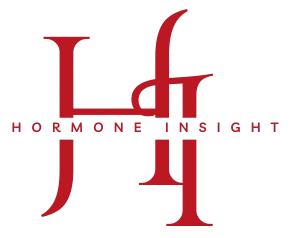Clinical Context
Procedural sedation for gastroscopy is complicated in patients with obesity and obstructive sleep apnea (OSA). Both conditions predispose to upper airway obstruction during sedation, with adipose tissue in the pharynx and reduced airway tone creating a “perfect storm” for hypoventilation and desaturation. Propofol, the most common sedative for endoscopy, further relaxes upper airway muscles and depresses respiratory drive, amplifying these risks.
Standard nasal cannula oxygen delivery provides supplemental oxygen but doesn’t address the fundamental problem: airway obstruction causing hypoventilation. Nasal cannulas deliver oxygen to the upper airway, but if ventilation is inadequate due to obstruction, oxygen delivery to alveoli is compromised. Patients may have preserved oxygen saturation briefly (due to oxygen reserves) but accumulating CO2 and eventual desaturation.
Nasal mask oxygenation provides positive pressure to the upper airway, similar to CPAP (continuous positive airway pressure) used for OSA treatment. This positive pressure stents open the pharynx, reducing obstruction and improving ventilation—not just oxygen delivery. The question is whether this approach, during the brief duration of gastroscopy, meaningfully reduces hypoxemia events in high-risk patients.
Study Summary (PICO Framework)
Summary:
In obese or OSA patients undergoing propofol-sedated gastroscopy, nasal mask oxygenation significantly reduced hypoxemia (32.8% → 8.5%), subclinical respiratory depression (48.3% → 20.3%), and severe hypoxemia (13.8% → 1.7%) compared to standard nasal cannula, with no increase in other sedation-related adverse events.
| PICO | Description |
|---|---|
| Population | Adults 18-70 years with obesity or OSA undergoing propofol-sedated gastroscopy. |
| Intervention | Nasal mask oxygenation during procedure. |
| Comparison | Standard nasal cannula oxygenation. |
| Outcome | Hypoxemia: 32.8% → 8.5% (P<0.001). Subclinical respiratory depression: 48.3% → 20.3% (P<0.001). Severe hypoxemia: 13.8% → 1.7% (P<0.001). No increase in other adverse events. |
Clinical Pearls
1. The magnitude of benefit is striking—nearly 75% relative reduction in hypoxemia. From 32.8% to 8.5% represents a clinically meaningful difference that could reduce procedure interruptions, need for airway interventions, and patient morbidity. Severe hypoxemia dropped from 13.8% to 1.7%—an 88% relative reduction. These are large effect sizes for a simple equipment change.
2. The mechanism is positive pressure airway support, not just more oxygen. Nasal cannulas and nasal masks can deliver similar FiO2, but the mask provides positive pressure that stents open the collapsible pharyngeal airway. This addresses the fundamental pathophysiology in obese/OSA patients: upper airway obstruction during sedation. More oxygen doesn’t help if it can’t reach the alveoli.
3. Subclinical respiratory depression was also reduced, suggesting ventilation improvement. Subclinical respiratory depression (likely defined by elevated end-tidal CO2 or reduced respiratory rate) reflects inadequate ventilation before overt hypoxemia occurs. The reduction from 48.3% to 20.3% indicates that nasal mask support improves ventilation itself, not just oxygen delivery—providing a margin of safety before desaturation.
4. No increase in other adverse events supports safety and feasibility. A concern with any new equipment during endoscopy might be interference with the procedure, patient discomfort, or gastric insufflation. The absence of increased adverse events suggests nasal mask oxygenation is practical for routine use in high-risk patients without trade-offs.
Practical Application
Implement nasal mask oxygenation for obese/OSA patients undergoing sedated endoscopy: Based on this evidence, nasal mask oxygenation should become standard for high-risk patients. The dramatic reduction in hypoxemia justifies the minimal additional equipment and setup. Communicate with endoscopy units and anesthesia colleagues to update protocols.
Screen for obesity and OSA before sedation procedures: Identifying high-risk patients before procedures enables appropriate oxygenation equipment selection. Ask about snoring, witnessed apneas, and daytime sleepiness (STOP-BANG screening). BMI should be documented. High-risk patients should receive nasal mask support, not standard cannula.
Consider whether nasal mask might benefit other sedation contexts: While this study focused on gastroscopy, the principle applies to any procedural sedation in obese/OSA patients: colonoscopy, bronchoscopy, dental procedures, and interventional radiology. Similar benefits might be expected whenever propofol or similar sedatives are used in high-risk airways.
Ensure proper equipment and training: Nasal masks for procedural use differ from CPAP masks used for sleep apnea treatment. Ensure endoscopy staff are trained in proper mask fitting and flow settings. Equipment should be available in all procedure rooms, not just upon special request.
How This Study Fits Into the Broader Evidence
High-flow nasal cannula (HFNC) and other positive-pressure airway support during sedation have been studied in various contexts. HFNC during intubation (as apneic oxygenation) has become standard practice. Its role during procedural sedation has been less defined. This study provides specific evidence for nasal mask support in the high-risk gastroscopy population.
OSA patients are known to have increased perioperative complications, including difficult intubation, postoperative respiratory events, and prolonged hospital stays. Strategies to reduce sedation-related hypoxemia address a recognized patient safety gap. Guidelines from the American Society of Anesthesiologists emphasize special precautions for OSA patients, though specific oxygenation modalities haven’t been mandated.
The obesity epidemic means more patients present for procedures with high-risk airways. Practical, evidence-based solutions like nasal mask oxygenation improve safety without requiring advanced airway management or limiting access to needed procedures.
Limitations to Consider
The specific nasal mask device and pressure settings used would affect reproducibility—these details are important for implementation. Single-center study may limit generalizability. Propofol dosing and technique between groups should be similar—unblinded studies risk differential sedation depth. Long-term outcomes (procedure completion rates, recovery times, patient satisfaction) aren’t detailed. Cost-effectiveness analysis would support implementation decisions.
Bottom Line
Nasal mask oxygenation during propofol-sedated gastroscopy dramatically reduced hypoxemia (from 32.8% to 8.5%), subclinical respiratory depression (from 48.3% to 20.3%), and severe hypoxemia (from 13.8% to 1.7%) in patients with obesity or OSA, without increasing other adverse events. This simple intervention addresses airway obstruction—the fundamental problem in high-risk patients—rather than just providing supplemental oxygen. Nasal mask oxygenation should become standard for obese and OSA patients undergoing sedated endoscopy.
Source: Wenlong Yan, et al. “Effect of nasal mask oxygenation on incidence of hypoxemia during gastroscopy with propofol sedation in patients at risk of hypoxemia: a prospective randomized controlled study.” Read article here.

